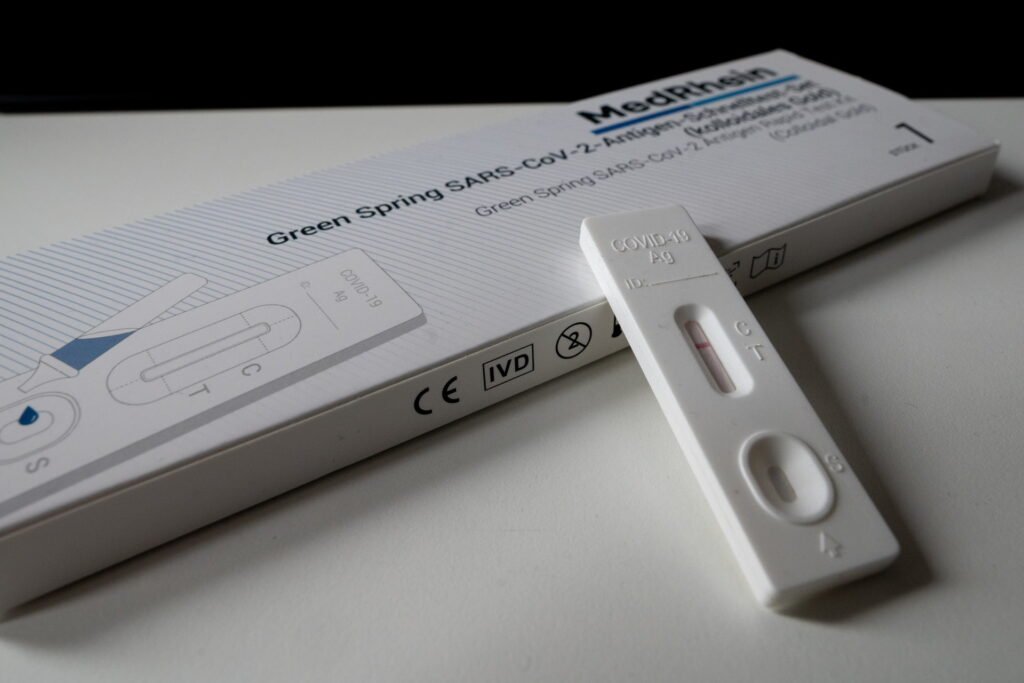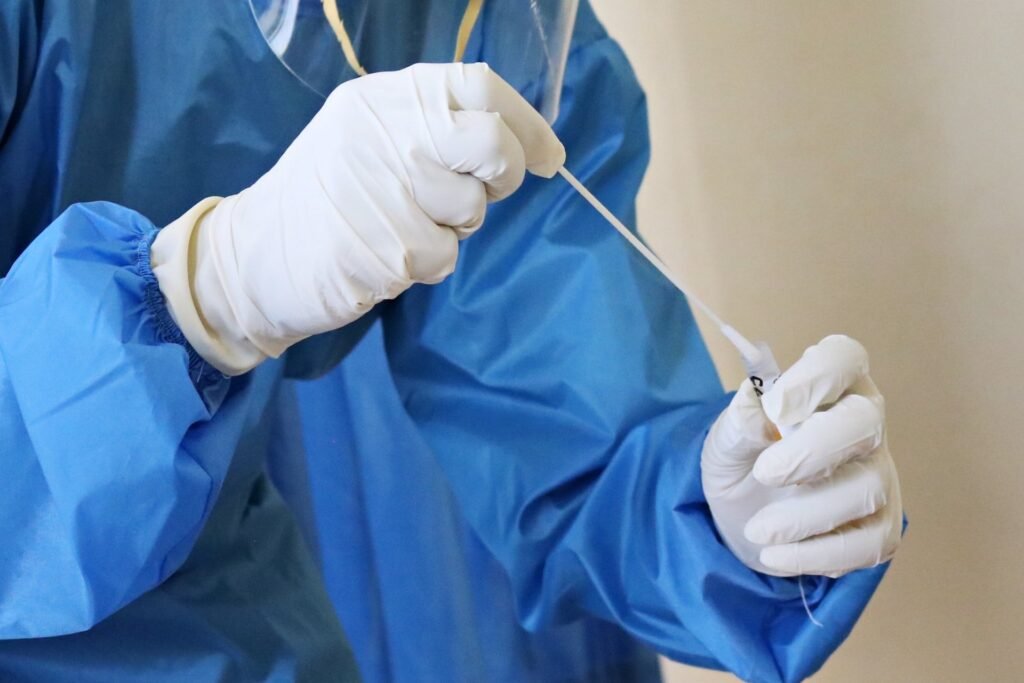The rules around testing for COVID-19 change frequently, so it can be challenging to know when it’s safe to start getting back to your daily routine, including going back to work. Whilst a negative test can’t be taken as a 100% guarantee that you aren’t infectious, it is a good start.
In general, if you feel well enough and have tested negative, you should be able to go back to work. But, there are many different situations to consider, so in this guide, we will tell you everything you need to know about rapid antigen testing and returning to work.
When Should I Self-Isolate?

Even if you have received a negative test result, there are some situations when you’ll still have to self-isolate. For example, you’ll have to self-isolate for ten days if any of the following apply:
- You’ve been contacted by Test and Trace after being in close contact with someone who has tested positive for COVID-19.
- You have been asked to, before being admitted to hospital.
- Someone you live with has tested positive unless you are fully vaccinated.
- Your lateral flow test was positive, and you are waiting on the result of a PCR test to confirm.
What if I Have COVID-19 Symptoms?
You should try and arrange a PCR test as soon as possible after developing COVID-19 symptoms.
If you feel unwell with COVID symptoms when at work, you should inform your manager immediately and go home as soon as possible. If you develop symptoms at home, book a PCR test and don’t go to work until you have received the results.
If your test comes back negative, but you still feel unwell, stay at home until you feel well enough to return to work. If your illness involves sickness or diarrhoea, you should not return to work until 48 hours have passed since your symptoms stopped.
Do I Need to be Re-tested?

If you have previously tested negative for COVID-19 but later develop symptoms, you should take another test. Remember, the main symptoms of coronavirus are a new cough, a high temperature, and a loss of taste and smell.
If you are still displaying some of these symptoms but have tested negative, you should continue self-isolating until the symptoms have passed. Unfortunately, no coronavirus tests are 100% accurate, although false positives are rarer than false negatives.
You should follow positive lateral flow tests (rapid home tests) with a PCR test to confirm the results. If your lateral flow test result is negative, but you are showing COVID-19 symptoms, you should go for a PCR test to double-check.
What Should I Do if a Family Member Tests Positive?
If you have tested negative, but a member of your household has tested positive, you will need to stay off work and self-isolate for 14 days. The 14 days begins from when the person who has tested positive first developed symptoms.
If you develop symptoms within this period of 14 days, you must begin to self-isolate for an additional seven days. This means you might have to self-isolate for longer than 14 days in total.
If you feel well enough, you could speak to your employer about working from home during your isolation period.
Do I Need a Negative COVID Test to go Back to Work?
If you have been off work with coronavirus (and have tested positive), you don’t need to take another test before returning to work and ending self-isolation.
As long as you have self-isolated for ten days following the onset of your symptoms and haven’t had a high temperature for at least 48 hours, you can go back to work when you feel able to do so.
If you still have a cough or a loss of taste after the ten days have ended, you can end self-isolation and go back to work. These symptoms can continue for many weeks following infection with COVID-19, but you will not be infectious after ten days have passed.
Those who are immunocompromised or had very severe symptoms should wait a little longer before returning to work following infection with COVID-19. If you were critically ill, you should wait at least 15 days after the initial onset of your symptoms before returning to work (although you might have to wait longer than this to make sure you feel well enough to go back to work).
Immunocompromised individuals should wait 20 days from their initial positive test before returning to work to ensure they are no longer infectious. However, just like anyone else, it isn’t necessary to have a negative test before going back to work and ending self-isolation.
What Should I Do if I Feel Unwell But Tested Negative?
Depending on your symptoms and how well you are feeling, you can return to work if you wish to do so.
Remember, if you later develop new COVID-19 symptoms, you should take another test and self-isolate until you receive the results.
If you feel really unwell, it’s best to stay at home until you feel better, even if you don’t have symptoms of coronavirus. And remember, if your symptoms include sickness or diarrhoea, you should stay at home for 48 hours after the symptoms have ended.
In Conclusion
Self-isolating is very difficult for most of us, so you’ll probably be keen to get back to work as soon as possible if you feel well. You don’t need to take a test to return to work, so long as you have self-isolated for at least ten days since developing symptoms and haven’t had a fever for at least 48 hours.
If you have tested negative but later develop symptoms or are contacted by Test and Trace after being in close contact with someone who has tested positive for COVID-19, you will need to self-isolate and take another test.
